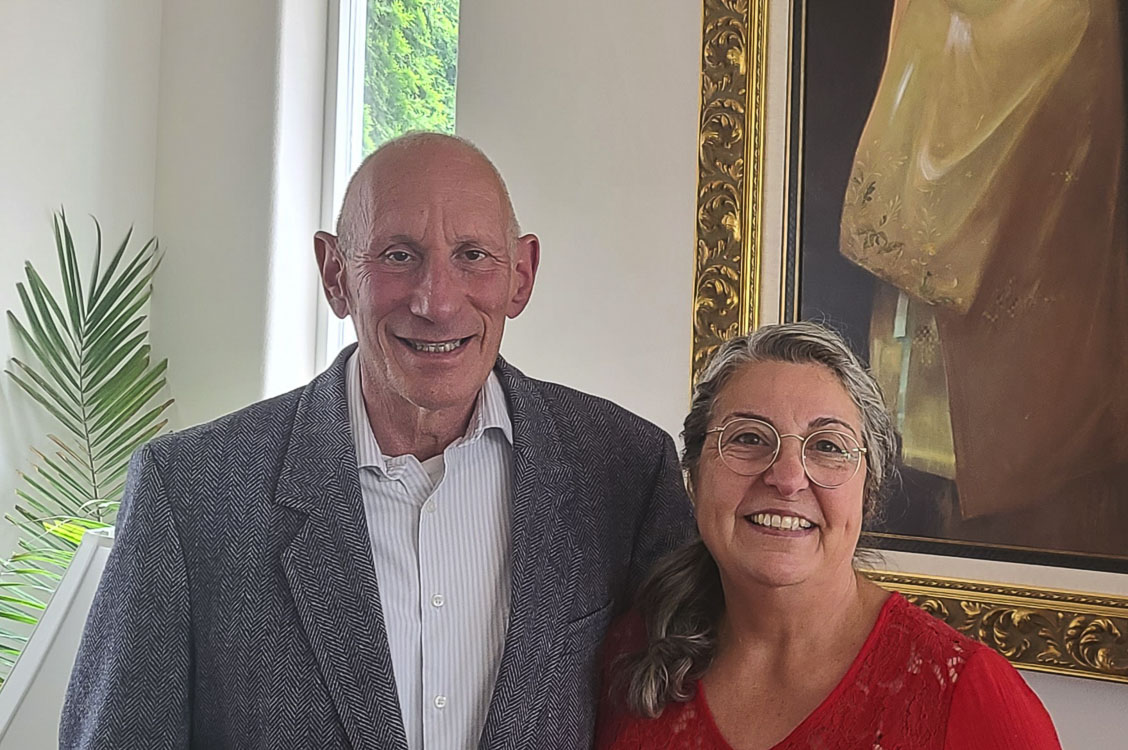Southwest Washington voters are encouraged by the League of Women Voters to express their views during the redistricting process
Your voice is heard on election day.
But your voice doesn’t have to wait until election day.
In fact, this month your voice can have lasting effects on future election days.
That is one of the messages that the League of Women Voters of Clark County (LWV) is trying to express as the state prepares for redistricting.

The 2021 Washington Redistricting Commission is currently hearing testimony from congressional districts across the state. Southwest Washington (Congressional District 3) is scheduled to be heard June 14.
The LWV has been conducting Speak-Up School, giving lectures on what redistricting is, its importance, and how citizens can get involved. The school also teaches citizens the best way to give testimony, to use the citizen’s own opinions but to express that opinion in a timely, concise manner.
All for a greater cause, as well.
“My wife and I grew up as engineers,” said Alan Unell. “Something we learned, in the engineering world you get a better solution to a problem when you get varied opinions about how to solve a problem.”
Unell and his wife Vokouhi Hovagimian are both members of the League of Women Voters. They live in Vancouver. Together, they have been teaching others all about redistricting.
They both point out that the league is non-partisan.
“We’re not concerned with either party or any party. We’re concerned that the process be fair and that you get districts about as competitive as can be,” Unell said. “When that is the case, you get better solutions to problems. You’ll find that people will vote on issues that are most important to them instead of just party-line issues.”
Redistricting happens every 10 years after the census. States redraw congressional and legislative districts.
Among the league’s mission is to encourage informed and active participation in government, and influence public policy through education and advocacy.
For redistricting, the league states that it is for promoting fair and effective representation at all levels of government, as well as the maximum opportunity for public participation. The league rejects protection of incumbents and any preferential treatment to political parties.
Unell points out, though, that redistricting has been political for pretty much the entire history of the country. He shows examples of gerrymandering — manipulating boundaries to favor one party or class — from all over the United States. Racial gerrymandering, he noted, was rampant in the Southeast since Reconstruction.
And Washington has its own “ugly” history, Unell said. He knows of Native American tribes that are separated. In a perfect world, that would not happen.
Of course, the process of redistricting is not easy. And next to impossible to make everyone happy.
The state constitution originally said to draw districts based on population.
“The end,” Unell said. “Not a lot of guidance.”
Through the decades, things changed. For years, the state legislature was in charge of redistricting.
“Not a good idea to ask legislators to draw the maps,” Unell said. “This is like asking the foxes to stand in front of the hen house. You can imagine that politicians would draw the maps in their own favor.”
In the 1980s, an independent commission was suggested, with two Democrats, two Republicans, and an independent, making up the five-person committee. The independent is the chair of the commission but does not have a vote.
“They tried it, and it worked,” Unell said.
Soon after, it became law in Washington. According to LWV documents, Washington is one of just six states that use independent commissions to draw congressional districts, and one of nine states to use the commission to draw state legislative districts.
Washington’s system is better than most, but Unell said it could be better. California, for example, has many more independent voices on its commission. According to LWV research, 40 percent of Washington voters say they do not belong to the Republican nor Democratic parties. But there is only one independent, who does not vote, on the Washington commission.
For now, though, that commission is in a listening mode, hearing testimony from citizens from across the state.
Hovagimian, who is a member of the board of the league, said the catalyst for the Speak Up School came about because 10 years ago the commission dismissed a number of testimonies for a variety of reasons.
Some people did not get their points across in the time allotted. Others struggled to explain why their district should be redrawn. Speak Up School was a way to help teach poise and presence, in order for folks to get to their point right away.
There are also ways for folks to draw up their own maps. They can even write their reasonings on those maps and send them to the commission, Unell said.
The league’s goal is to hear from 2,000 people from the state, or 200 per congressional district. The League of Women Voters is asking those from District 3 who are interested in testifying to register by June 7, a week before the hearing. Citizens can record their testimony on video or audio and upload testimony to the commission or they can attend the online public meeting on June 14.
For more information, go to the Washington State Redistricting Commission website at: https://www.redistricting.wa.gov/. As of Tuesday, that site did not have the software to draw your own map. But voters can draw their own legislative maps at: https://davesredistricting.org/maps#home.




